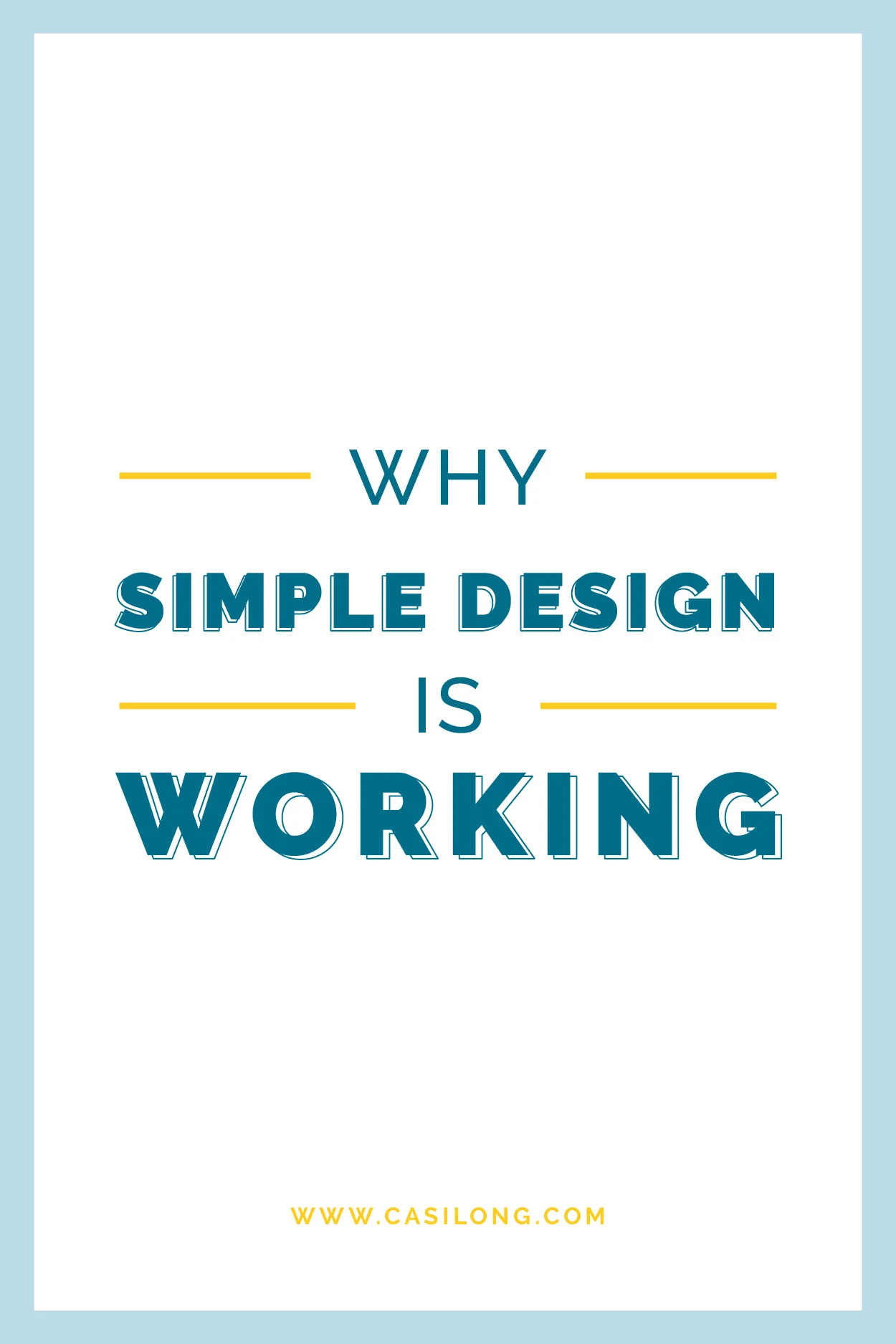Why Simple Design is Working
I ran across this quote a few days ago that summed up my thoughts perfectly:
“Apple pie has endured through the years because it’s something people easily understand. In the same way, a simple, classic design that doesn’t require your audience to think too hard to understand the message will still be relevant after years of fancy fluff and bad trends have come and gone.” —Speckyboy Design Magazine
In a world of fast-paced, hustle and bustle, I for one think simple design is working quite well and here’s why:
1 | It allows for fewer distractions
Simple design often means fewer design elements. To some, this can seem plain and boring. But the purpose of any design is to convey a message to the viewer.
Don't overcomplicate something just for the sake of overcomplicating. If you've communicated your message effectively, there's no need to add fluff.
For instance, if you get engaged and pick up the phone to call your best friend, do you first have a long conversation about what happened last week. NO! She answers the phone and you say, “I’m engaged!” You get straight to the most important point, so there isn’t time for distractions.
Most readers have to be instantly interested or they quit reading. They don’t have time to make it past the bells and whistles to get to the main point. So don’t make them dig for the main message.
“Good design is unobtrusive.” —Dieter Rams
2 | It allows the most important elements to shine
Because of #1, when the viewer has fewer distractions, it allows the most important elements of the design to shine. Simple design allows for color, photography and typography to stand out and be more impactful. The most important elements are not competing with other non-essential design elements.
This style of design allows readers to truly grasp the message. A powerful image or a bold statement that stands alone on a page, can convey a truly moving message to the audience.
“Simplicity is about subtracting the obvious and adding the meaningful.” —John Maeda
3 | It is sophisticated
When I think of sophistication, the words classic and timeless come to mind. Also, Jackie Kennedy. Jackie wore simple, classy dresses and a pearl necklace. She didn’t over-complicate her outfits and yet people still think of her as the epitome of sophistication.
Overcrowding and over complicating a design can often seem like the designer is insecure and amateur. Clean and simple design is thoughtful, purposeful and will never go out of style.
(Designs on left by RowanMade)
“If you do it right, it will last forever.” —Massimo Vignelli
4 | It keeps the focus on the reader
Simple design forces the designer to think about what they want the reader to experience. What will appeal to the reader? How will they feel? Will they understand what we are trying to tell them?
If there is anything standing in the way of the user getting exactly what he or she needs, it is taking the focus off the reader and putting it on the designer’s agenda for the design.
If the designer feels the need to clutter up a design to try and make it better, the original design probably wasn’t effective to begin with.
Use only what you need in order to convey the message to the reader. Otherwise, lose it.
"Good design is as little design as possible." —Dieter Rams
How to create great design:
1. Portray the information clearly and efficiently
2. Call attention to the most important content.
3. Create a positive experience for the viewer.
What do you think—is simple design working? Why or why not? Let me know in the comments below.













